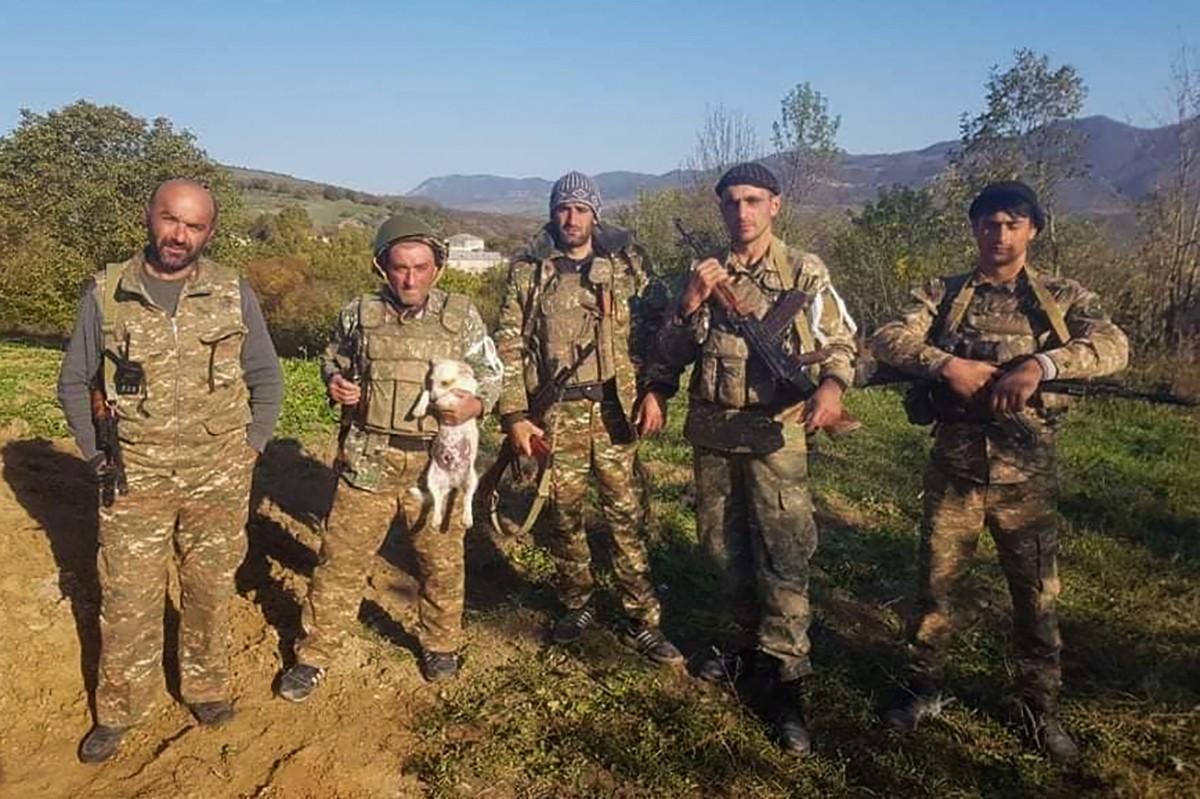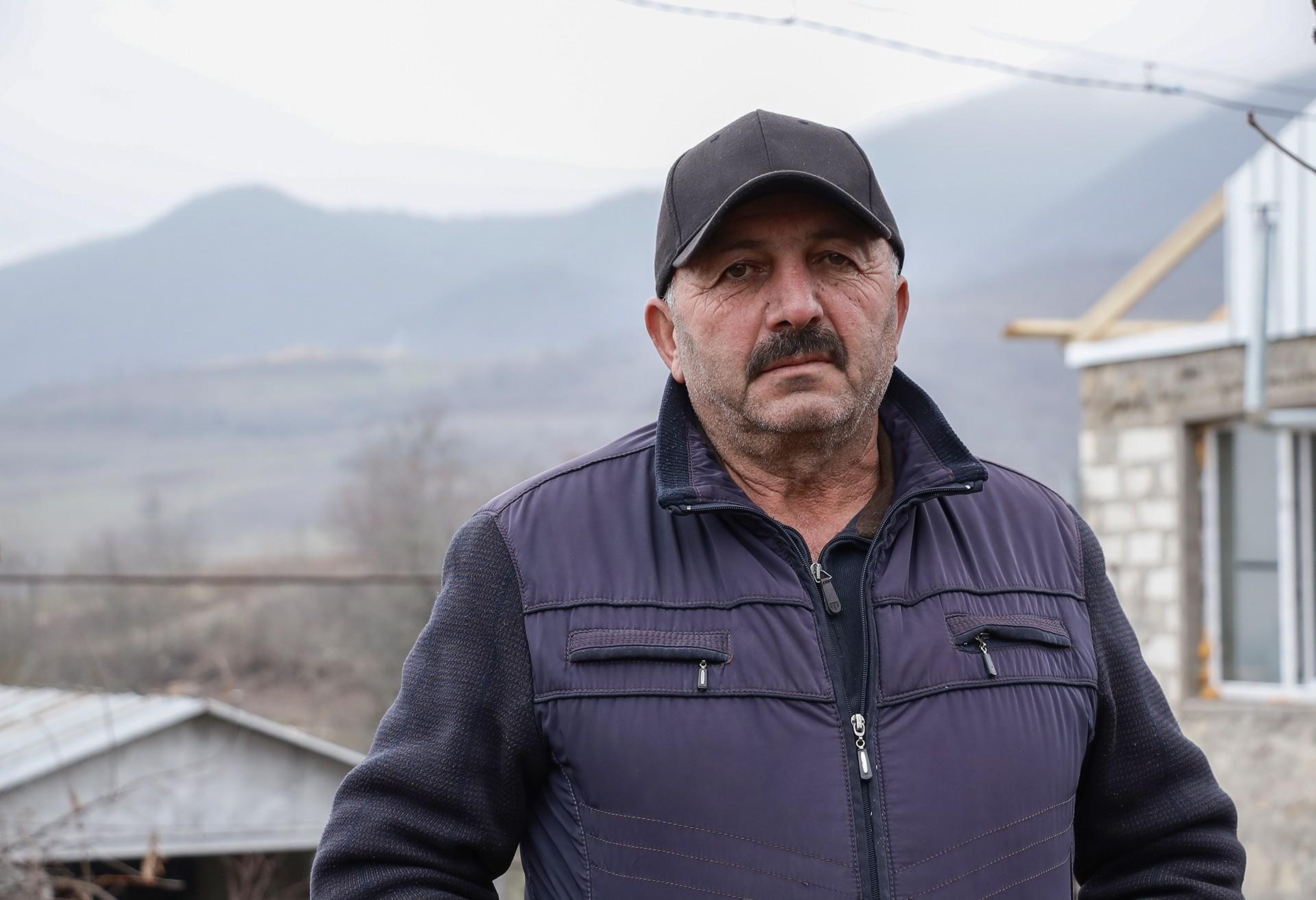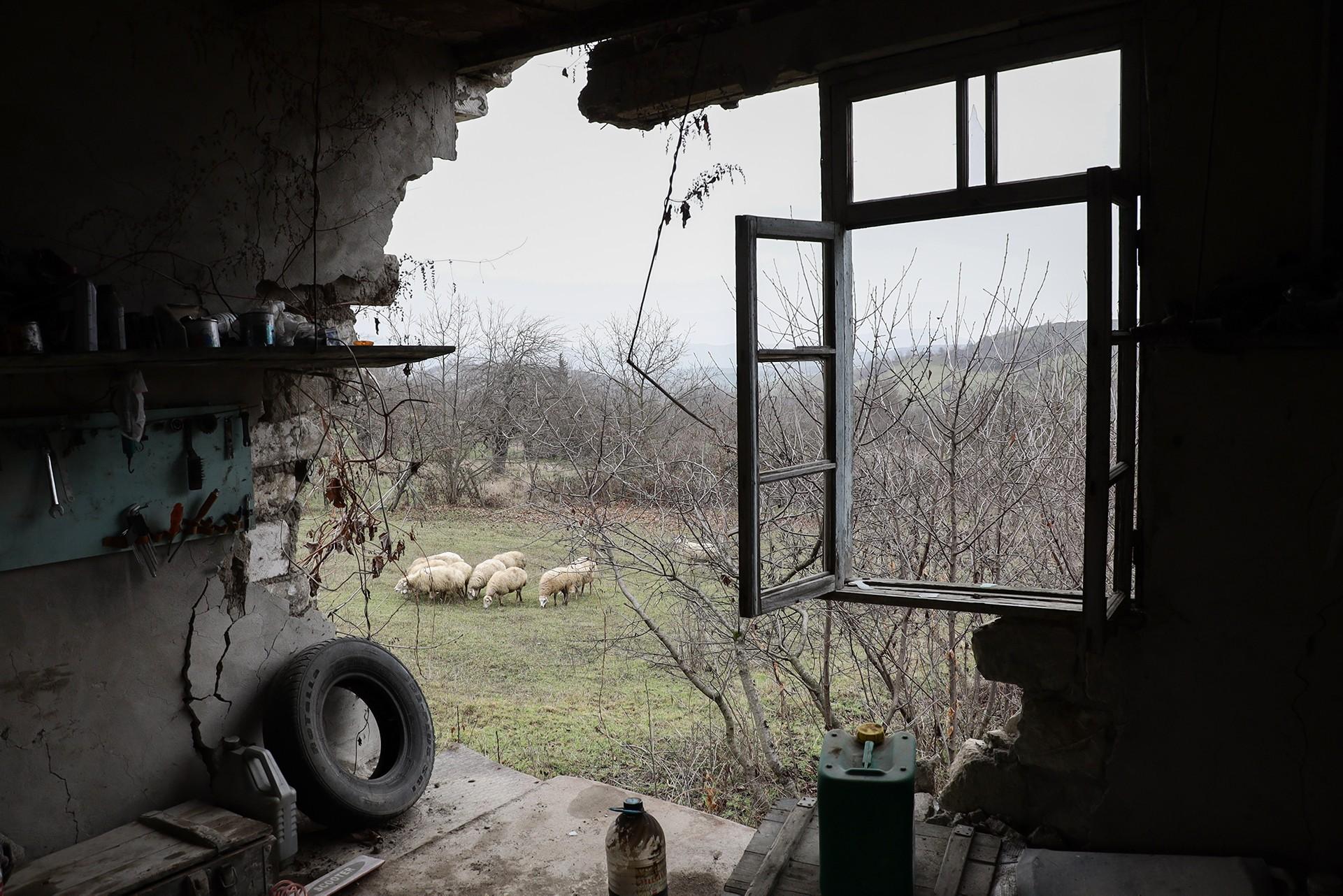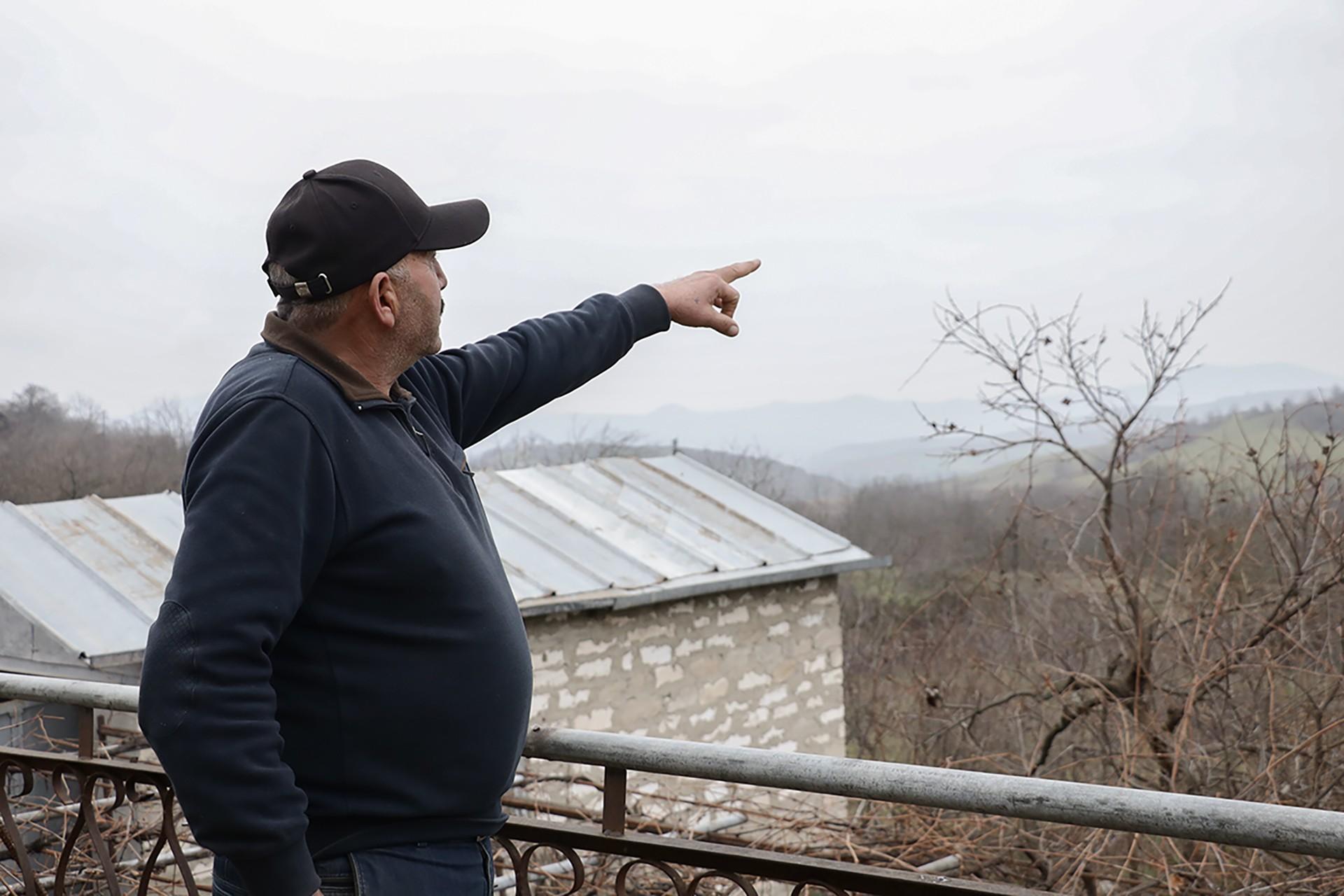
An Artsakh Family’s War Legacy: Karo Alaverdyan Remembers His Three Brothers
"Kamo, Karmen, Karlen, Karo. We were four brothers, now I am the only one left," says Karo Alaverdyan, who hails from the village of Taghavard now split into two sections following the 2020 Artsakh war.
One section remains in Armenian hands. The other is now controlled by the Azerbaijani military.
Karo is the eldest of the four brothers, all who fought in Artsakh over the years.
Kamo was killed during the first Artsakh war in 1992. Karmen was wounded in the same war, was disabled, and died in 2018. 47-year-old Karlen, the younger brother, fought in the 2020 war and died on October 27 while defending Taghavard.
An Azerbaijani sniper killed Karlen while he was evacuating the wounded from the village cemetery.
“I had left the village for a short time but was in constant contact with Karlen. Even before the incident, we were talking on the phone about the situation in the village. I called him afterwards but could not reach him. I contacted one of our villagers in the area and was told that Karlen had been shot and could not be evacuated,” says Karo Alaverdyan.
Karo tried to remove his brother's body several times but failed.
"I decided to tie a rope around my waist, enter the cemetery, and tie my brother's body so that if they hit me, they would pull us out with that rope,” Karo says.
The remains of Karlen and other two wounded were removed only after the war.
Karo turns on a recording of a wartime telephone conversation where Karlen is persuaded to leave the village.
“How’s it going?”
"We're standing in a circle, almost in a ditch," says Karlen.
“Why aren't you leaving? Get out of there”
"How can I leave it? There are 18-year-olds standing in front of us," Karlen answers.
Karo Alaverdyan's house in Taghavard is in the Armenian section, near the border now dividing the village. Armenian and Azerbaijani flags are seen flying on both sides.
When Hetq visited Karo, he was changing the roof of the house. "I built the house in 1988. It was first damaged in the 90s, during the war. Now we are changing it again," says Karo.
Recently, shots were fired from the Azerbaijani positions in the direction of the house. When asked if those working on the house are afraid, Karo answers: "The workers climbed down for a moment, but then got back up and continued the work. We live and live in Taghavard. We will not leave here no matter how much they want us too.”
Karo says that no Azerbaijani lived in Taghavard during the Soviet era. He hopes that the half of the village now under Azerbaijani control, where the village cemetery is, will be returned one day.
Knar, Karo's wife, makes tea for the roof workers on a cold December day.
She says that after the ceasefire, when they returned to Taghavard, they were shocked by what they saw. Much of the village had been heavily damaged.. Many Armenian villagers decided not to return, noting that an uncertain future awaited them.
"We came home. Everything was a mess. We went down to the basement, turned on the stove and sat down. No matter how safe and well-maintained a house one has far away from here, there is no better place than Taghavard,” says Knar Alaverdyan.
Top photo, first from the left: Karlen Alaverdyan
 Videos
Videos Photos
Photos



Comments (3)
Write a comment